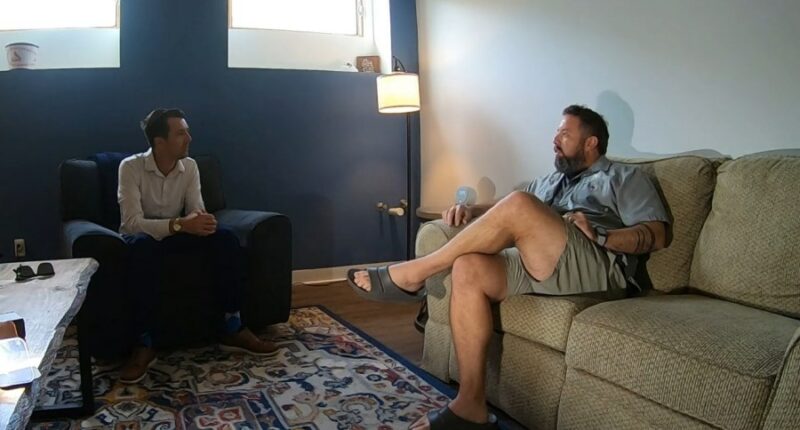Share this @internewscast.com

MAHOMET, Ill. (WCIA) — Discussing mental well-being can be challenging, particularly for military personnel and first responders. A program based in Mahomet is dedicated to ensuring these individuals aren’t just heard, but that they’re communicating with someone who genuinely comprehends their experiences.
“It’s something I’m passionate about because I lived it,” said Fire Chief and EMS worker Chris Humer.
He’s talking about trauma, specifically what members of the military and first responders face.
“Truthfully, the most challenging aspect is responding to those you love and care for,” Humer explained. “Being present in those moments is an honor, and it’s a responsibility I value deeply. However, when things don’t unfold as hoped, it can be incredibly challenging.”
And recently, a difficult situation came up: the death of Champaign firefighter Trace Conover.
“It’s tough, and I have several friends I regularly check in with,” Humer added. “We maintain conversations like ‘How are you doing, what’s happening?’ They know that I’m available, along with others, if they need someone to talk to.”
One of those other people is former Army Special Forces therapist and the co-founder of The Anchor Point Michael Jenkins.
“In essence, trauma is trauma, regardless of whether you’ve been serving for two decades or you’ve just started,” Jenkins stated. “You’ll experience it and need to adapt. Having personal experience with it makes a big difference because this wasn’t discussed during my time in the military.”
He offers his services to military and first responders for free, with a team of mental health professionals with those backgrounds to connect with.
“Many find comfort in communicating with someone who speaks their specific language,” Jenkins noted. “No offense to other therapists, but this isn’t typically their area of expertise. Just as you’d consult a cardiologist for heart issues, you wouldn’t see a podiatrist for that.”
But Jenkins biggest message:
“Don’t hesitate,” he advised. “Everyone reaches a point where they contemplate whether it’s right for them. Absolutely, it’s worth trying. At worst, you might find out it’s not a perfect fit for you.”
It’s something Humer has seen firsthand.
“Somebody, hopefully for everybody, that is a good fit and they can share those experiences and help people work through it and let people know that as we work through this, that it’ll be okay,” Humer said.
And that’s exactly what The Anchor Point is there for. If you are a first responder, a servicemember or a veteran interested in the group’s services, or if you know someone who is interested, you can visit The Achor Point’s website to start the process of getting help.









